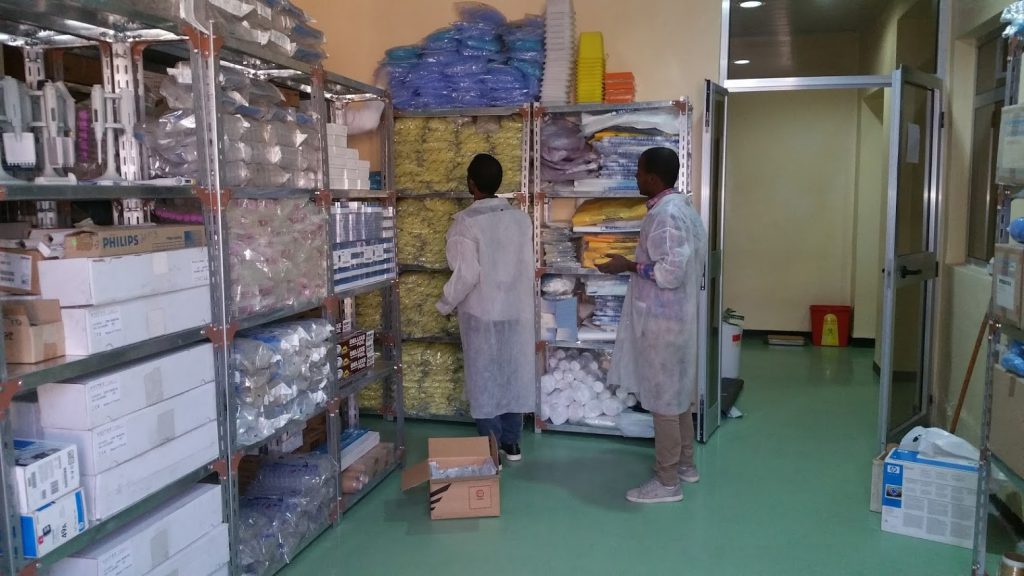KAIZEN Implementation Successfully Going On at EPHI

Implementation of KAIZEN at the Ethiopian Public Health Institute (EPHI) is becoming fruitful. One of the Directorate of EPHI, Vaccine and Diagnostic Production (VDPD) is one example for the success.
Birhanu Hurissa, A/Director of VDPD explained that there are three KAIZEN teams in his directorate.
“First materials that are not used by the Directorate were identified and were given to other sections which can use them. It used to take several hours to find a material, but now we can find it in 30 seconds. The office of Fermi vaccine production team staffs were not in a comfortable and safe office, but now after KAIZEN implementation the office has been renovated and the work chain flow has been improved remarkably. The laboratory rooms, offices, store and sanitary rooms were all in one confined area; and now by implementing KAIZEN they are well organized and separated which created an excellent working environment,” said Birhanu.
VDPD’s laboratory room doors are now finger print controlled and security cameras are installed in every rooms of the Directorate.
According to Biruhanu a machine to filter water for injection was bought, however since there was no room for the machine it was not installed. But now by the coordination of Fermi vaccine production team, General Service and the Vaccine KAIZEN Team the construction of the room for the machine is completed and negotiations are underway with the supplier company to install the machine.
Alemu Shiferaw, EPHI’s KAIZEN Team Coordinator, revealed that VDPD is one of the successful Directorates in implementing KAIZEN and currently the Directorate has stepped up to Level Two KAIZEN Team.
“KAIZEN is being implemented by all directorates and offices of the Institute. This includes the staff cafeteria which recently completed construction of indoor games house for the staff and modern kitchen. The kitchen’s cooking system was traditional and to improve the service the Institute’s KAIZEN Team in collaboration with the Social Cafeteria a modern kitchen has been built and the necessary materials are installed. In addition the ground around the Cafeteria’s dining hall is affixed by tiles to avoid dust,” added Alemu.
The Institute’s Social Cafeteria has been giving service for the last 44 years and currently it serves more than 700 employees of the Institute.

